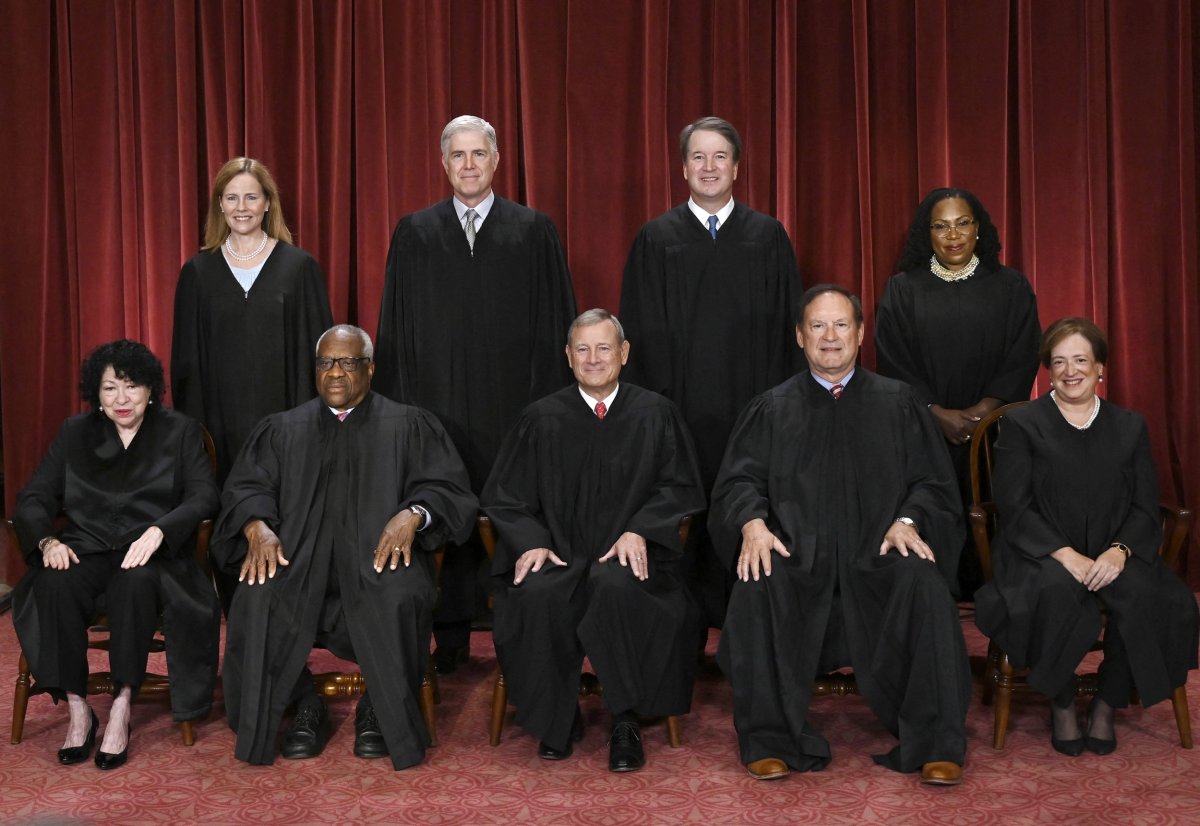An attorney has warned that the landmark overturning of Chevron deference will “dramatically reshape” the three branches of the U.S. government.
On Friday, the decades old precedent that stipulated courts should refer to government agency experts when deciding if policies are lawful was overturned six to three in a landmark ruling steered by conservative justices in the Supreme Court.
The Chevron deference refers to a Supreme Court ruling, Chevron vs. Natural Resources Defense Council, from 1984 that ruled judges should defer to federal agencies in interpreting ambiguous elements of statutes.
Joyce Vance, a former United States attorney for the Northern District of Alabama, said the overturning of Chevron “dramatically reshape[s] the balance of power between the three branches of government, knocking the checks and balances envisioned by the Founding Fathers off kilter.”
“What happens if a company that builds airplanes objects to an agency decision that requires them to use, say, six bolts to attach an engine to a plane? They can go to court and make their case to a federal judge,” Vance wrote. “And then, that judge—a lawyer, not an engineer—gets to decide how it will work.”

GETTY
The elimination of the Chevron deference stems from two lawsuits, Loper Bright vs. Raimondo and Relentless vs. Commerce, regarding a rule that stipulates fishing companies must pay for some of the costs of placing federal observers that are legally required to accompany those vessels while at sea.
“The Constitution assigns to the federal judiciary the responsibility and power to adjudicate cases and controversies,” Chief Justice John Roberts wrote in the ruling. “Agencies have no special competence in resolving statutory ambiguities. Courts do.”
Liberal Supreme Court justices dissented on the ruling. “In one fell swoop, the majority today gives itself exclusive power over every open issue—no matter how expertise-driven or policy-laden—involving the meaning of regulatory law,” Justice Elena Kagan wrote in her dissent, supported by Justices Ketanji Brown Jackson and Sonia Sotomayor. “As if it did not have enough on its plate, the majority turns itself into the country’s administrative czar.”
Vance warned that the overturning will lead to enduring “uncertainty and change” in the “administrative landscape.”
“Especially since the only way agencies can now avoid having the courts oversee their decisions is to have Congress pass clear, unambiguous laws—something that has rarely been the case and is even less likely with the current political dysfunction in that institution,” she continued. “It’s important for us to understand that this is a highly technical legal ruling that impacts us all.”
“We are grateful the court has overruled Chevron,” Bill Bright, a New Jersey-based herring fishermen and plaintiff in Loper Bright, said in a statement shared with Newsweek.
“Today’s restoration of the separation of powers is a victory for small, family-run businesses like ours, whether they’re involved in fishing, farming, or retail. Congress never authorized industry-funded monitoring in the herring fishery. And agency efforts to impose such funding hurts our ability to make an honest living. Nothing is more important than protecting the livelihoods of our families and crews.”
White House spokesperson Karine Jean-Pierre said in a statement seen by Newsweek: “While this decision undermines the ability of federal agencies to use their expertise as Congress intended to make government work for the people, the [President Joe] Biden-[Vice President Kamala] Harris administration will not relent in our efforts to protect and serve every American.”
Uncommon Knowledge
Newsweek is committed to challenging conventional wisdom and finding connections in the search for common ground.
Newsweek is committed to challenging conventional wisdom and finding connections in the search for common ground.
